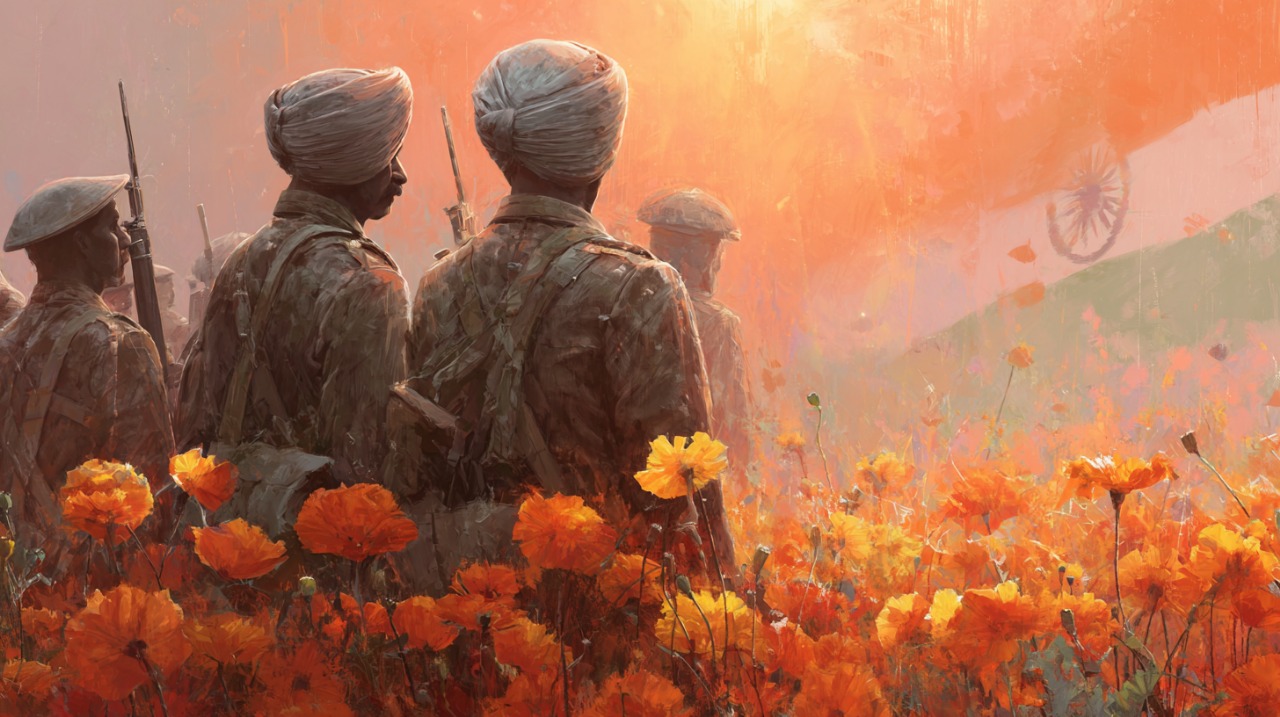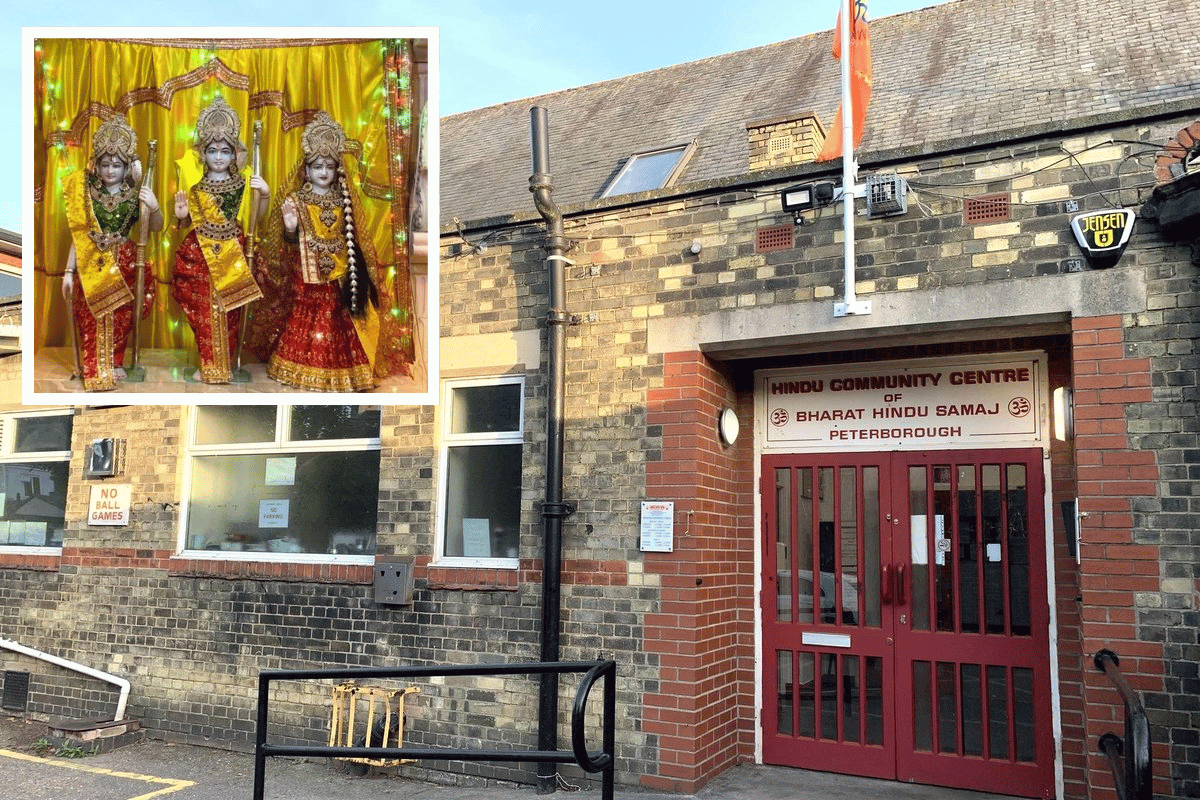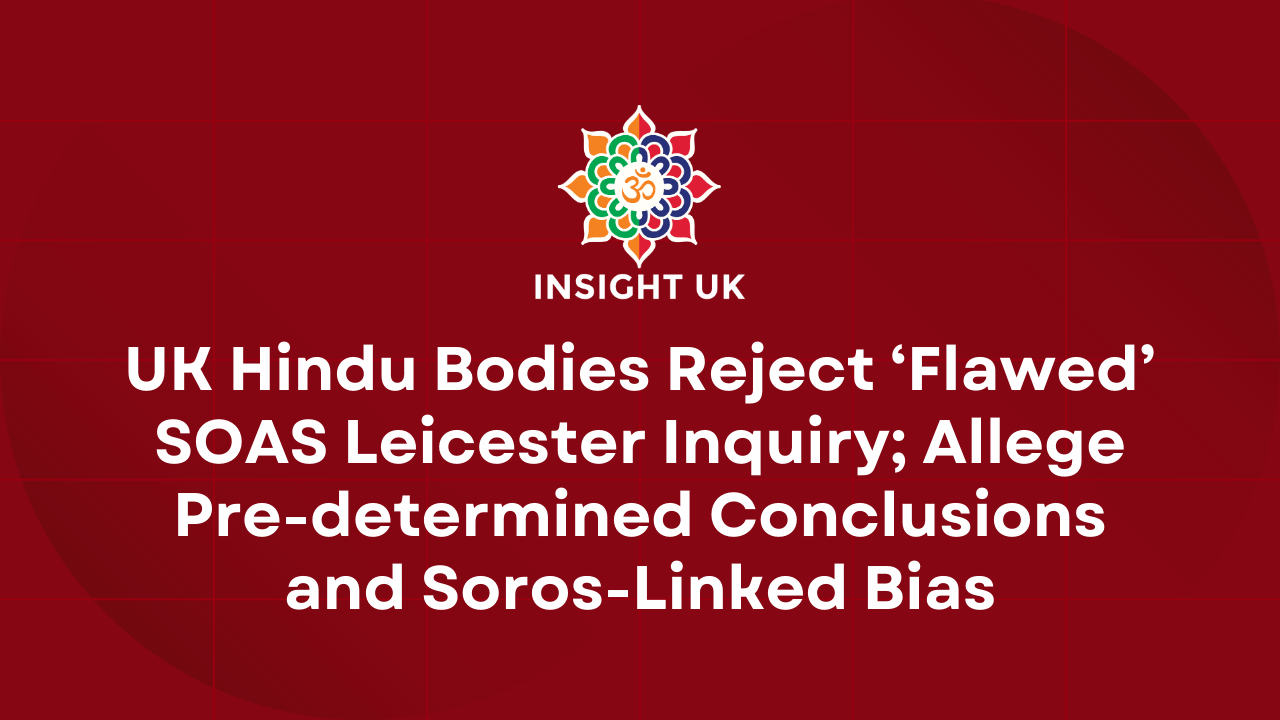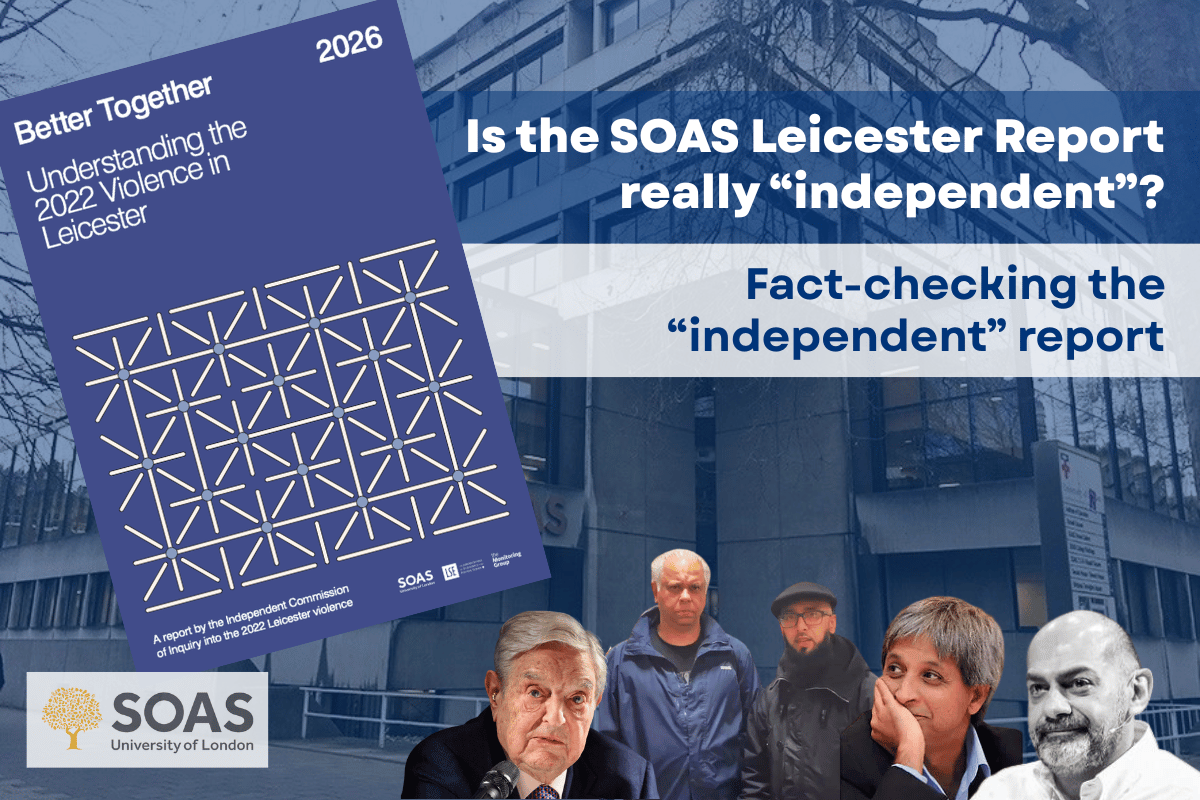
When the world remembers the two great wars, the focus often rests on the heroism of Western troops on European battlefields. Yet behind the Allied victories stood millions of soldiers from British colonies, especially from India, whose courage and sacrifice remain vastly underrepresented in global memory and public commemoration.
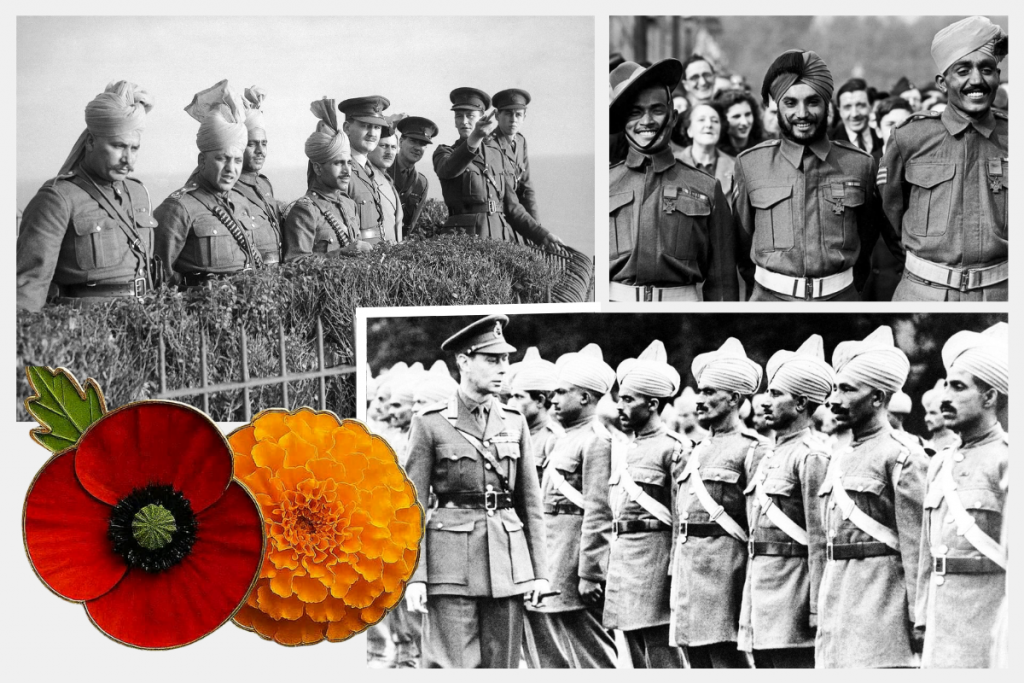
During the First World War (1914–1918), around 1.3 million Indian soldiers and labourers served the Allied cause across Europe, Africa, and the Middle East. Nearly 70,000 of them lost their lives, and many more returned wounded or disabled. In the Second World War (1939–1945), India raised the largest “volunteer” army in history, with 2.5 million men serving in multiple theatres of war, from North Africa to Burma. About 87,000 of them died in action. These are not minor figures; they represent one of the most significant military contributions made by any nation outside Europe.
To put this in context, Canada sent about 620,000 troops and Australia around 416,000 during the First World War. Both countries, with far smaller populations, are rightfully celebrated every year through national remembrance ceremonies, military memorials, and comprehensive school education. India’s contribution, which was roughly twice as large, receives nowhere near the same recognition in international narratives or public commemorations.
At cemeteries maintained by the Commonwealth War Graves Commission (CWGC), many Indian graves bear anonymous inscriptions such as “A Soldier of the Indian Army.” While the CWGC has made efforts to identify and document these soldiers, many remain nameless due to colonial record-keeping practices. In Britain, national events like Remembrance Sunday and the Armistice Day service at the Cenotaph in London often make only passing reference to Indian troops. Despite representing one-sixth of all soldiers who served the British Empire in World War I, Indian servicemen rarely feature in speeches, visual tributes, or mainstream educational materials.
This lack of visibility and recognition extends to public knowledge. A 2018 survey by the think tank British Future found that fewer than one in five Britons were aware of the role Indian soldiers played in the First World War. By contrast, the contributions of Australian, Canadian, and New Zealand forces, the ANZACs, are deeply ingrained in public consciousness, commemorated through national holidays, documentaries, and films.
The underrepresentation of Indian soldiers in war memory stems partly from the colonial context. They fought not for an independent India but under the British Crown, often in conditions that denied them equal treatment, pay, or recognition. Their sacrifices are forgotten, and their heroism is rarely celebrated with the same pride afforded to European troops. After independence in 1947, India’s national focus shifted toward the freedom struggle, leaving little space for commemoration of colonial-era military service.
Yet, the bravery and professionalism of Indian soldiers are beyond question. They fought at Neuve-Chapelle and Ypres in France, at Gallipoli in Turkey, in Mesopotamia, East Africa, and later at El Alamein and Kohima, battles that turned the tide of both wars. The Indian Army’s medical corps, engineers, and transport units were equally vital to the Allied operations.
Their story is not only India’s, it is part of the shared human history of the 20th century. Recognition should not be limited by geography or empire. As historians like David Omissi and Santanu Das have argued, the memory of Indian soldiers has been overshadowed by the narratives of their colonial rulers.
Just as our British solders, sailors and airmen served in geographical theatres far from Western Europe as well, it can be similarly; if not more appreciated, the service of British Indian Hindu & Sikh soldiers on four fronts non-contiguous to British Indian borders ie Western and Southern Europe, North Africa, Eastern Mediterranean (Gallipoli and the Ottoman Levant) and against the Italians in the Horn of Africa. Five theatres of war in this case away from India by thousands of miles. Just as the sacrifices of British forces personnel are remembered from the Somme to Singapore, far from Blighty, it is similarly poignant in remembering Indian Hindu & Sikh soldiers who fell from battlefields in Ypres to Mesopotamia (modern-day Iraq).
Only in recent years have modest steps been taken, such as memorials in Brighton and Leicester, and digital archives launched by the CWGC, to include Indian soldiers more prominently in remembrance.
Over 3.8 million Indians served across both World Wars, with more than 150,000 losing their lives. The magnitude of their sacrifice stands in stark contrast to their limited representation in textbooks, media, and memorials. True remembrance requires not only ceremonies but also historical justice.
As the world continues to mark anniversaries of the great wars, it is time to restore the place of these forgotten soldiers in our collective memory, where they rightfully belong.
References
- Commonwealth War Graves Commission. Annual Report 2023–24.
- David Omissi, Indian Voices of the Great War (Macmillan, 1999).
- Santanu Das, India, Empire and First World War Culture (Cambridge University Press, 2018).
- British Future, Remember Together: How We Can Make Remembrance Relevant to All Communities (2018).
- BBC History, “The Indian Army in the First World War,” accessed 2024.
Archives & official records
- Commonwealth War Graves Commission — How to find and visit Indian war dead (CWGC blog).
https://www.cwgc.org/our-work/blog/how-to-find-and-visit-indian-war-dead-from-the-world-wars/ - CWGC — Find war dead (search tool for individual casualty records).
https://www.cwgc.org/find-records/find-war-dead/ - National Archives (UK) — Indian Army personnel research guide (service records and where they are held).
https://www.nationalarchives.gov.uk/help-with-your-research/research-guides/indian-army-personnel/ - National Archives (UK) — War diaries and military records overview (useful for unit-level research).
https://www.nationalarchives.gov.uk/help-with-your-research/research-guides/wars-overview/ - Ministry of External Affairs (India) — Indian War Memorials Around the World (PDF with CWGC and memorial information).
https://www.mea.gov.in/Uploads/PublicationDocs/23460_IWM_Book__11-06-2014_.pdf
Museums, collections & projects
- Imperial War Museums (IWM) — “12 Photos of the Indian Army in the First World War” (IWM collection highlights).
https://www.iwm.org.uk/history/12-photos-of-the-indian-army-in-the-first-world-war - IWM — India’s War: An IWM collecting project (increasing representation of Indian WWII experience).
https://www.iwm.org.uk/collections/projects/india-second-world-war - IWM Research Blog — Discovering the experiences of Indian soldiers in the First World War (Indian Soldiers’ Fund research).
https://www.iwm.org.uk/blog/research/2014/08/discovering-the-experiences-of-indian-soldiers-in-the-first-world-war-using-the-indian-soldiers-fund - CWGC Foundation blog — “We Tell Their Stories: South Asian Casualties” (numbers and context).
https://foundation.cwgc.org/blog/we-tell-their-stories-south-asian-casualties/
Think-tanks, public surveys, centenary reports
- British Future — Remember Together evaluation report (project on inclusive remembrance). PDF.
https://www.britishfuture.org/wp-content/uploads/2022/02/Remember-Together-evaluation-report.Final_.pdf - British Future / IWM / partners — The People’s Centenary / WW1 tracker reports (public awareness and attitudes). PDF.
https://www.britishfuture.org/wp-content/uploads/2019/04/The-Peoples-Centenary.Final-report-2018.pdf
Scholarly works and secondary literature (book pages / authoritative entries)
- Cambridge University Press — Santanu Das, India, Empire and First World War Culture (book page / details).
https://www.cambridge.org/core/books/india-empire-and-first-world-war-culture/5716C8F0420DFCBD61D18082754B892D - Springer / Palgrave listing — David Omissi, Indian Voices of the Great War: Soldiers’ Letters, 1914–18 (book details).
https://link.springer.com/book/10.1007/978-1-349-27283-9 - Internet Archive / Open Library — Indian Voices of the Great War (archive record / digitised copy where available).
https://archive.org/details/indianvoicesofgr0000unse
Other useful, contemporary/summary resources
- India1914 — site focussed on Indian contribution in WW1 (useful summary & links to sources).
https://www.india1914.com/ww1bus.aspx
Key Statistics
- According to the Commonwealth War Graves Commission (CWGC) blog:
“The Indian Army swelled in size during wartime. What had begun the war as a 150,000-strong army grew to an organisation of over a million men and women in uniform.” https://www.cwgc.org/our-work/blog/courage-sacrifice-honour-cemeteries-memorials-commemorating-indian-army-personnel/
And on casualties:
“The Commonwealth War Graves Commission commemorates by name approximately 74,000 officers and enlisted men of the Indian Army who died in the First World War.” https://www.cwgc.org/our-work/blog/courage-sacrifice-honour-cemeteries-memorials-commemorating-indian-army-personnel/
For the Second World War:
“At its peak, 2.5 million people served in the Indian Army’s multi-cultural ranks. The Commonwealth War Graves Commission commemorates over 87,700 Indian armed forces personnel who lost their lives in the Second World War.” https://www.cwgc.org/our-work/blog/courage-sacrifice-honour-cemeteries-memorials-commemorating-indian-army-personnel/- From the blog on the “Punjab Registers” (CWGC Non-Commemoration Programme):
“It is estimated that around 1.5 million Indians served with the Indian army [in WWI], two-thirds as combatants and one third providing logistical support.” https://gala.gre.ac.uk/id/eprint/36347/7/36347_RAND_%20The_Punjab_registers.pdf?
And:
“The Commonwealth War Graves Commission casualty database commemorates 73,923 individuals who died whilst serving with Indian Forces in the Great War.” https://gala.gre.ac.uk/id/eprint/36347/7/36347_RAND_%20The_Punjab_registers.pdf? - From the British Future polling report:
“86 % of respondents agree that ‘we should commemorate all those who fought for Britain in the World Wars, regardless of where they came from’ – with 64 % strongly agreeing. … Only 3 % disagreed.” https://www.britishfuture.org/ve-day-80-public-supports-efforts-to-raise-awareness-of-commonwealth-ww2-service/
“Just 55 % of respondents are aware that Indian soldiers fought for Britain in the World Wars.” https://www.britishfuture.org/ve-day-80-public-supports-efforts-to-raise-awareness-of-commonwealth-ww2-service/


